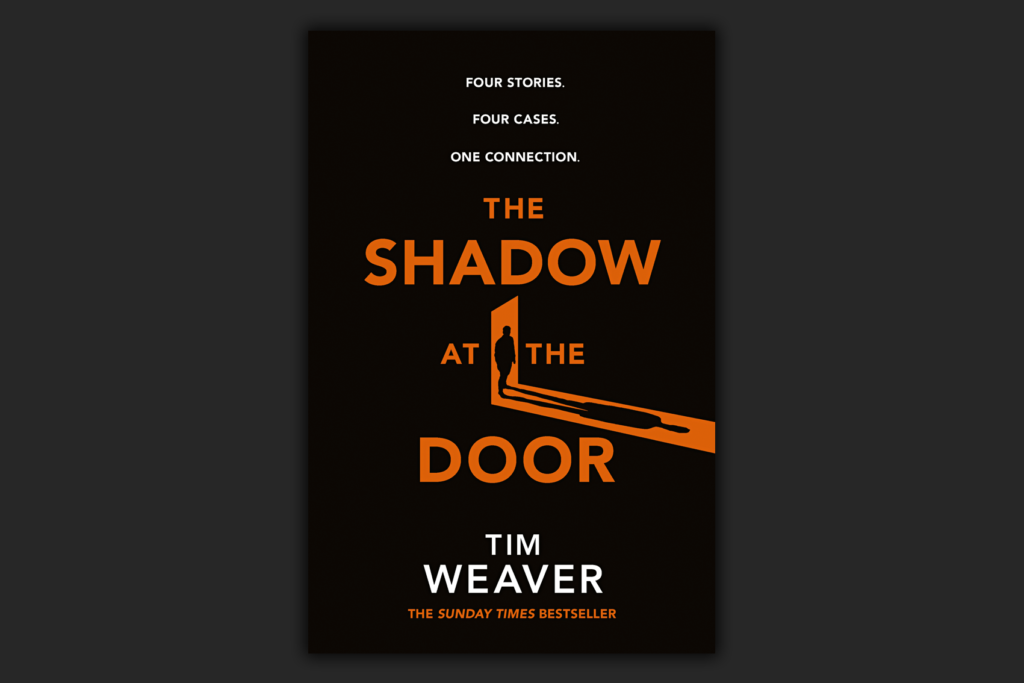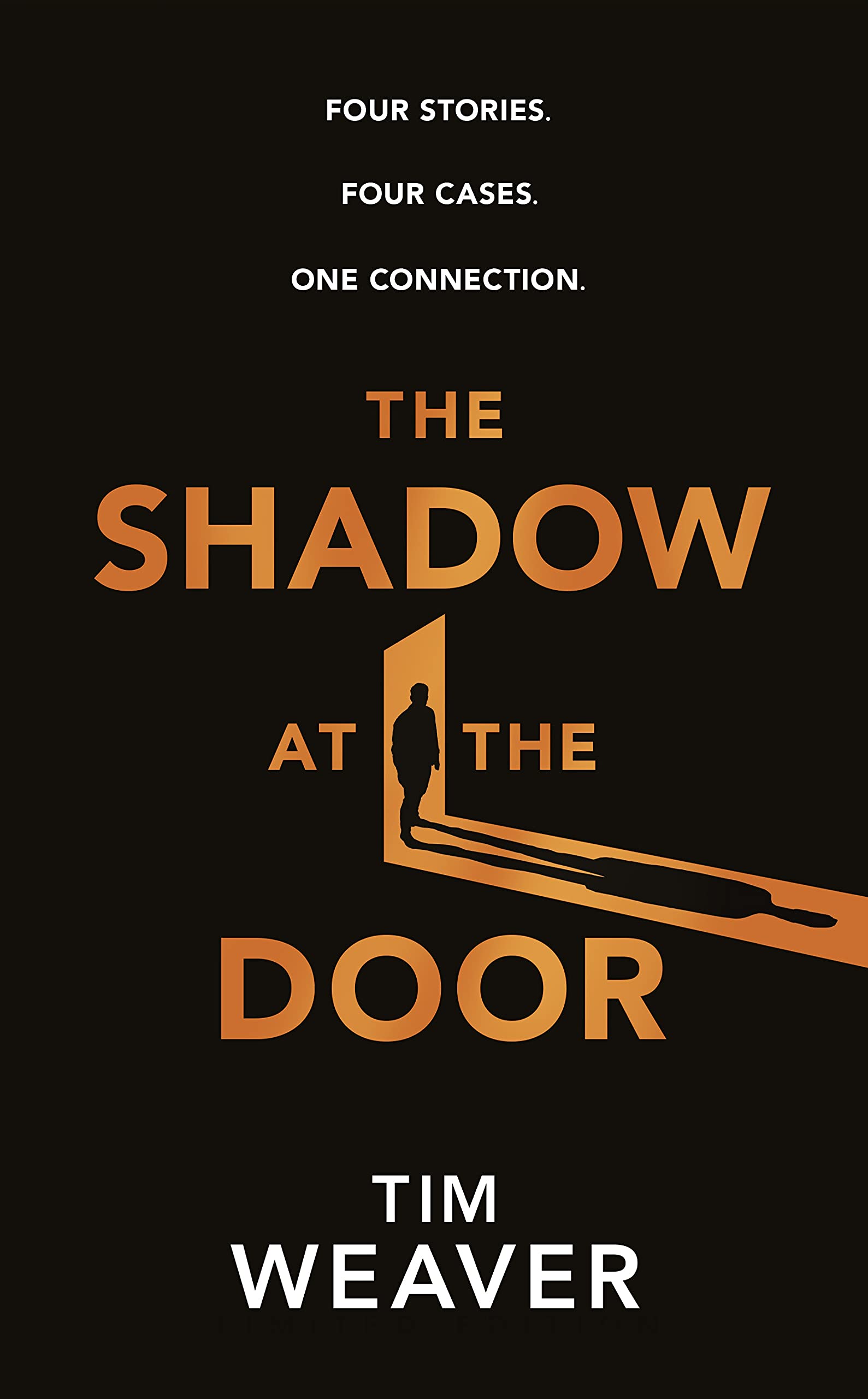Books
Extract: The Shadow at the Door by Tim Weaver
The Shadow at the Door by Tim Weaver is the most unique thriller of the year, bringing together four heart-pounding stories, all of which are connected.
In the opening case, missing persons investigator David Raker is hired to find out how a man vanished inside his locked home – but before long, Raker’s search for answers becomes linked to three other mysteries.
A night patrolman on the London Underground makes a deadly discovery. A cold case is reopened – but the key witness appears to no longer exist. And thousands of miles away, a random shooting may not be random at all.
Read on for an extract from one of the gripping cases in The Shadow at the Door by Tim Weaver!
The Shadow at the Door
by
Tim Weaver
Case #2
Bags
They’d called Gerry Stein lots of names down the years.
One of the guys he’d worked with on the Northern Line had spent a few months referring to him as ‘Gerry Can’, not just on account of it sounding like a container you could store fuel in, but because Gerry was the kind of guy who tended to help others when he could. ‘Gerry Christmas’ was another – because he loved the festive period – and he’d also heard one of the younger guys refer to him as ‘Stein Kampf’. Gerry had no idea if that one had stuck, if it only got used in whispers behind his back, but he knew where it had come from, and why: he’d had to bollock the kid one night because he’d borrowed Gerry’s torch and then couldn’t remember where he’d left it. And judging by that nickname, and the way he always glared at Gerry whenever they passed each other in the stations, the kid had clearly taken it personally.
Mostly, though, Gerry tended to get called ‘Johnny’, as in Johnny Cash. It had been going on for so long now that a lot of the people he worked with didn’t even know that wasn’t his real name; he suspected even his boss thought his actual name was Johnny. The irony was, Gerry didn’t look anything like Johnny Cash, and he certainly didn’t know much of the guy’s music, it was just that he happened to do the thing Johnny Cash sang about in one of his most famous songs.
In fact, Gerry had been doing it for twenty-five years.
Every night, between one and five, he took to the tunnels of the Underground, armed with a radio, a torch and a comfortable pair of shoes, and he walked the line.
He’d walked most of them during his quarter of a century as a patrolman – the Northern, the Central, the District, the Jubilee – but he liked the Circle Line the best. The stations were close to one another and mostly subsurface or above ground, unlike the deep- level lines on the Northern, Jubilee and Central. With those ones, you were surrounded by dark and silence most of the time, with little or no respite from it; on the Circle, you got to see the stars in the sky occasionally and hear the hum of the street.
What he also liked about the Circle was that it brought him into contact every week with his best mate, Stevie O’Keefe. Stevie was a patrolman on the Jubilee Line. They’d grown up together in Dagenham, had lived on the same street, been to the same school, and had both been offered jobs on the Tube within six months of each other. They’d started out as ticket inspectors but when the bosses asked for patrolmen, people who were prepared to check the lines when the live rails were off, when commuters were asleep at home and tourists were tucked up in their hotel rooms, the two of them had looked at each other and decided to give it a shot.
Gerry had never married, but at the time he took the job he had a young daughter, Kerry, who’d been the one good thing to come out of the short, ugly relationship he’d had with her mother, Mandy. He’d only got to see Kerry at weekends for most of the years his daughter had been growing up, but it was different these days: Kerry was now married herself, with two boys, and, in theory at least, Gerry got to see her whenever he wanted. Stevie, on the other hand, had always been part of a tight family unit, but when he and Gerry took the jobs as patrolmen, Stevie’s boy was already a teenager, so relatively self-sufficient, and his wife was working as a nurse, clocking all sorts of irregular hours. That meant Stevie had never been drawn to the normal nine-to-five routine. And, in turn, it was why, all these years on, the two of them – both sixty, both greyer than they would have liked, weightier too – were still marching out a route through London’s hidden world, and ensuring their paths crossed twice a week at Westminster, where the Circle and Jubilee connected.
Of course, the bosses didn’t know about their meetings, and probably wouldn’t have been too chuffed to find out either, but Gerry didn’t care. He spent an hour with Stevie on Tuesdays and Thursdays, and if the suits didn’t like it . . . well, good luck finding a replacement. He smiled at the thought of that, wondering how exactly they would advertise the role if they really did get rid of him. Do you like to work in pitchblack? Do you like minimal interaction with other human beings? Do you like rats? Do you like the burning stench of brake fluid? Then we’ve got the job for you! ‘Don’t forget the fluffers,’ Gerry said quietly to himself, except of course there weren’t many of them left any more. It was mostly just machines these days. ‘Fluffers’ was the name given to the people who used to wipe down the walls of the tunnels at night, getting rid of all the gunk – the hair and skin – that was matted to the brickwork. Back in the day, a lot of them were West Indian women, and he often used to stop and chat to them. They were always fun. He thought of them frequently when he passed through a tunnel and heard the buzz of a machine and the trickle of running water.
Emerging from the dark and into the half-light of Westminster Tube station, Gerry got up on to the platform, via the access stairs, and headed for the exit. On a Tuesday, like tonight, he met Stevie in the Circle and District Line concourse, part of the vast cathedral of concrete and stainless steel, of criss-crossing pillars and brushed-chrome escalators, at the heart of the station. None of the escalators worked after hours, so the two men would have to use them like a regular staircase, Gerry returning the favour on a Thursday and going down to meet Stevie at the equivalent concourse on the Jubilee Line. Normally, they’d be able to hear each other before they saw one another, their heavy footsteps ringing on the escalators in the silence of the station.
As Gerry got to the concourse, he could see that Stevie hadn’t arrived yet, so he found a pillar to lean against and waited. Night lighting was on, pale cream bulbs doing little to eradicate the great pockets of darkness that existed in the hall at night. It seemed to make the place bigger somehow, more intimidating, the complete lack of sound and movement adding to the effect. Sometimes, in his more sombre moments, it put him in mind of a tomb. He’d eventually come to appreciate the quiet, because London could get pretty bloody noisy, but the lack of transit, the stillness, that was different. Gerry found comfort in feeling people move past him in the street. He liked seeing cars on the roads and planes in the sky. Maybe it came from having no one waiting for him at home, but he liked knowing he wasn’t alone out there. In here, though, that was exactly what he was, and he’d never got used to it, not entirely.
Earlier in the week, the station had been busy. There had been men in high-vis jackets strapped to the pillars above him, working on the escalators, repairing broken lights. Torches were looped around their heads and music was playing somewhere on tinny radios. It felt less lonely then. Now there was no one, no music, no voices, no footsteps echoing through the emptiness of the station. It was so quiet he could hear the soft wrinkle of his trousers. He could hear his bones clicking.
He thought again about how this place was like a tomb.
He loved the history of the city, used to read about it all the time. He used to tell Stevie how the Tube was built on plague pits, how it was just rivers of bone, streams of decayed marrow and minerals. He’d told him how the authorities had once wanted to build a station at Muswell Hill, but could never finish it because there were simply too many bodies in the way. At the height of the Great Plague, seven thousand people were dying every week. This city is just one big grave, he thought, checking the time.
Tap tap. A noise.
Gerry turned around, the soles of his boots squeaking against the polished floor, and looked back in the direction he’d come. The walkway ran for about twenty feet, then angled off along a short tunnel to the platform somewhere out of sight.
‘Stevie?’ he said.
When he got no response, he flicked on his torch and shone it out into the space between him and the tunnel entrance. He didn’t really need his torch – the concourse had just about enough light of its own – but it was a natural reaction to spending so much time on the lines. As he swept the torch around him, moving it left to right, and especially as he shone it upward into the fifty-foot-high chasm above his head, he realized – not for the first time – how much space there was in Westminster station.
How many corners the light could never hope to reach.
How much pure, undiluted darkness.
He glanced back up the dead escalators that took passengers higher, towards the ticket hall, and then pushed off the pillar and directed his torch in the opposite direction, the glow winking in the stairs as they descended to the Jubilee concourse.
‘Stevie?’
Nothing.
Then: tap tap.
Tap.
Tap.
What the hell was that? It sounded like it was coming from the next level down, from the Jubilee Line: up from the direction Stevie was supposed to be coming from.
Gerry checked his watch.
Three fifty.
You’re officially bloody late, Stevie.
‘Steve?’ he said, his voice less certain than he would have liked. He cleared his throat. ‘Steve, is that you?’ He sounded more confident this time. If Stevie was pissing around down there, he’d know that Gerry wasn’t amused because he only ever called him Steve when he was narked off about something. But, when there was no response, Gerry’s stomach started to clench, as if his body had skipped ahead of him somehow and was sending out a warning message.
Tap.
Gerry headed for the escalators.
At the bottom, he swept the torch from side to side, trying to light up corners of the concourse he couldn’t see into, or that weren’t illuminated by the night lights. The phrase the silence is deafening had never meant much to Gerry, but it meant something now. He’d never worried about being down here, cloaked in the kind of darkness most people would never experience in their lives, but that was also starting to get to him too. He wasn’t even sure why. He heard tons of noises on his nightly walks – all sorts of creaks and moans – yet there was something about this.
Something that didn’t feel right.
‘Stevie?’ Tap tap.
It sounded like it was coming from the actual line itself, on the platform. At the bottom of the escalators, Gerry took a step along the concourse, gingerly at first and then – as reason took over – more confidently. You’ve been walking these stations for twenty five years. Get a bloody grip on yourself. He headed towards the platform. A few seconds later, he was emerging on to the eastbound line.
The deepest part of the station.
Transparent screens had been erected all the way along, which – during the day – would slide back once the train was in the station. They were closed now and, beyond them, it was hard to make out the line without the help of a torch. The far tunnel, at the opposite end to where Gerry was now, was black, like an infected wound. Shadows were everywhere, on the ceiling, on the floor, in the pockets and grooves of the platform. Gerry swung the torch from left to right, and then stepped up to the screen.
That was when he saw it.
Enjoyed this extract from The Shadow at the Door by Tim Weaver? Let us know in the comments below!



Please note: Moderation is enabled and may delay your comment being posted. There is no need to resubmit your comment. By posting a comment you are agreeing to the website Terms of Use.